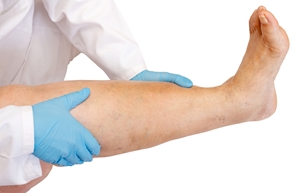
If you’re suffering the pregnancy woes of swollen ankles, this one’s for you. As if it weren’t frustrating enough to grow too big for most of your clothing, it hardly seems fair that during pregnancy, your shoes don’t fit either. Yet, 75 percent of moms-to-be experience this type of swelling. Known as edema, swollen ankles and feet usually become an issue around week 22 and may last all the way through delivery.
What’s the deal?
As with most pregnancy symptoms, fluctuating hormones are partially to blame. In addition, your blood volume nearly doubles to accommodate your developing baby. All those extra fluids sometimes get backed up, pooling in your tissue and leading to swelling in your extremities. The time of day and the temperature may also affect how your body handles this increase in fluids. You may notice at the end of a particularly hot day, your swelling is at its peak.
How to deal
While edema is a very common pregnancy symptom, if accompanied by high blood pressure, extreme weight gain and protein-rich urine, it may also signal a potentially dangerous complication called preeclampsia. Be sure to report any new symptoms to your healthcare provider. For the general population, where swelling is an ordinary reaction to pregnancy, there are a number of ways to find a measure of relief:
- Elevate: Keep off your feet for extended periods of time. While you’re sitting, be sure to elevate your feet to reduce pressure and prevent blood from pooling in your lower extremities.
- Lay off the salt:A high-sodium diet may contribute to swelling. Talk to your health care provider about ways you can decrease your sodium intake beyond staying away from the salt shaker.
- Hydrate: It seems the answer to all pregnancy woes can be found in a bottle of water – and edema’s no different. Keeping well-hydrated (10-12 8-ounce glasses per day) will help flush out sodium and decrease swelling.
- Exercise: Run this one by your doctor or midwife, but gentle pregnancy-appropriate workouts such as walking may help keep your blood flowing properly and prevent swelling in your lower extremities.
- Get support: Proper footwear can make a world of difference. Pack away the stilettos for now (they’re not good for your balance anyway) and try on a pair of support hose. These specialty pantyhose are meant to aid in blood circulation and can help relieve swelling.
Now, it’s your turn. Is swelling an issue for you during your pregnancy? What are some ways that you’ve found relief? Give another mom-to-be a helping hand by sharing your best tips in the comments below.


Leave a Reply